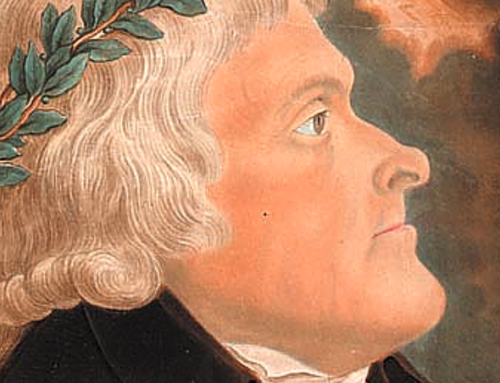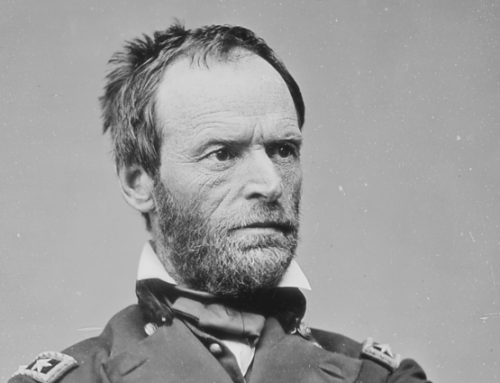 If one is considering the value of a Liberal Arts education on the high school or college level, it would be most helpful to articulate exactly what a liberal arts education really is or should be. There is no need to reinvent the wheel. Among the very fine explanations of what a Liberal Arts education is and should be, Russell Kirk’s The Conservative Purpose of a Liberal Education is to be considered. In truth, if adhered to, this little essay may go a long way in helping us avoid the way of Babel Technical Institute.With all the noise of recent months in the media about getting rid of Liberal Arts at certain colleges and universities in place of more “practical,” or as the ancients would have classified it, “technical training for slaves,” there comes a time to respond. But we begin with a defense of the barbarian position for a moment. Much of what passes in the name of Liberal Arts should be banished as it was never worthy of study. While one may enjoy the longest running animated series in television history, it really is not worthy of deep attention and three hours university credit. Or one may be obsessed with the most recent academic fad and desire to get a major in it through the “Liberal Arts Dept.” I fear to mention one as tomorrow it will likely be different. Actually, it will likely be different in fifteen minutes.The rare quality of those writing about the great tradition or liberal arts of past days is that they all had a sense of history of which moderns seem to be completely or significantly ignorant. Kirk affirms,”what we now call ‘liberal studies’ go back to classical times.”
If one is considering the value of a Liberal Arts education on the high school or college level, it would be most helpful to articulate exactly what a liberal arts education really is or should be. There is no need to reinvent the wheel. Among the very fine explanations of what a Liberal Arts education is and should be, Russell Kirk’s The Conservative Purpose of a Liberal Education is to be considered. In truth, if adhered to, this little essay may go a long way in helping us avoid the way of Babel Technical Institute.With all the noise of recent months in the media about getting rid of Liberal Arts at certain colleges and universities in place of more “practical,” or as the ancients would have classified it, “technical training for slaves,” there comes a time to respond. But we begin with a defense of the barbarian position for a moment. Much of what passes in the name of Liberal Arts should be banished as it was never worthy of study. While one may enjoy the longest running animated series in television history, it really is not worthy of deep attention and three hours university credit. Or one may be obsessed with the most recent academic fad and desire to get a major in it through the “Liberal Arts Dept.” I fear to mention one as tomorrow it will likely be different. Actually, it will likely be different in fifteen minutes.The rare quality of those writing about the great tradition or liberal arts of past days is that they all had a sense of history of which moderns seem to be completely or significantly ignorant. Kirk affirms,”what we now call ‘liberal studies’ go back to classical times.”
Russell Kirk has a very profound understanding of what liberal education is all about,”the higher aim of ‘man as an end,’ is the object of liberal learning…the primary purpose of a liberal education then is the cultivation of the person’s own intellect and imagination, for the person’s own sake…the function of liberal education is to order the human soul…liberal learning emancipates the mind from every narrow provincialism, whether of egoism or tradition.” For the modern critics who say that the professor of liberal education is married to tradition for the sake of tradition ignores entirely what Kirk said just a moment ago, and that is we are to be freed from our own egoism and the spirit of this age as well as traditionalism, that is, being committed to tradition just because it is tradition.When the moderns took over liberal arts, the term liberal became emphasized and the word arts in the broadest sense was completely lost, but more than that, was the death of the deep and rich history of the term liberal arts. “By ‘liberal education’ we mean an ordering and integrating of knowledge for the benefit of the free person–as contrasted with technical or professional schooling, now somewhat vaingloriously called ‘career education’.”
Another unique insight from Russell Kirk is a fun verbal rhetorical play where, speaking of liberal education, he talks about it as having a conservative purpose,” liberal education is conservative in this way: it defends order against disorder. In its practical effects, liberal education works for order in the soul, and order in the republic. Liberal learning enables those who benefit from its discipline to achieve some kind of harmony within themselves.”
Those concerned about liberal education should strive diligently to reclaim the term humane learning. Humane because it emphasizes that human at the center of this worry. Russell Kirk says this,” that person has primacy in liberal education.” This is not to say that for the Christian humanist or the Christian scholar, God is not at the center of humanistic learning since humans are the pinnacle of God’s created order.
When Kirk describes the function of a liberal education, he certainly does not do this in the terms that moderns would describe the function of a liberal education. For Kirk, the purpose of liberal education “is to conserve a body of received knowledge and to impart an apprehension of order to the rising generation.”
Again, for the moderns, the purpose of a liberal education is to get a set of skills so that the labor force can be well trained. For Kirk, he would strongly disagree. He says the primary result of a liberal education is conservative in nature, in that “it gives to society a body of young people, introduced to some degree to wisdom in virtue, and may become honest leaders in many walks of life.”
Considering the significant decline of education America has experienced since Kirk wrote this essay in the 1980s, we can only imagine that universities have become more of the diploma mills today than they were back then as market interests have taken over the heart and soul of higher learning.
On the most positive note, Russell Kirk observes that most people who have the shaping force of liberal education do not take the places of power and influence that the corrupters of our society possess. “Most possessors of a liberal education never come to sit in the seats of the mighty. Yet they leaven the lump of the nation, in many stations and occupations; we never hear the names of most of them, but they do their conservative work quietly and well.” Here Russel Kirk is also reflecting on the very nature of good itself–that God and his goodly manner has determined that Good will quietly and subtly work out its way in our fallen world for His glory.
For those of us in Humanities, Humane Letters, or Liberal Arts (in the original sense of the term), if we are learned, then it is in part because of people just like Russell Kirk. If we are even scholars in the making, it is because of the Great Tradition that Kirk upheld. So if we are masters, then let us remember our Headmaster and offer words of gratitude in his memory.
Books by Dr. Kirk may be found in The Imaginative Conservative Bookstore.







Leave A Comment